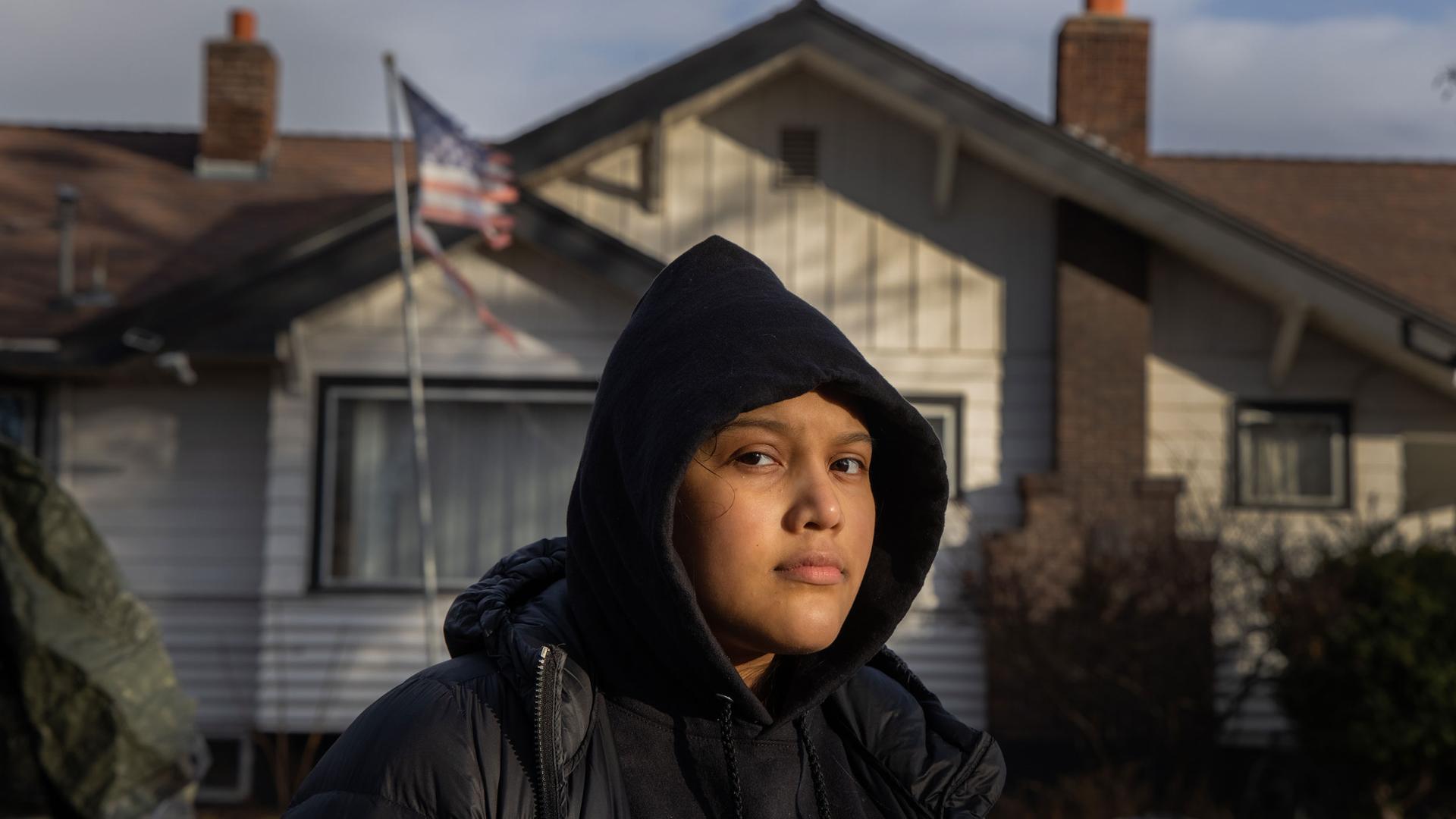Editor’s note: This story is part of “Every 30 Seconds,” a collaborative public media reporting project tracing the young Latino electorate leading up to the 2020 presidential election and beyond.
Michelle Aguilar Ramirez offers a virtual tour of her new home. It’s a purple-pink house in Spokane on the opposite side of Washington, closer to the Idaho border than to Seattle, where she used to live.
Related: Pandemic stress overshadows US election for this young Latina voter
“Here’s a picture of me, my mom, and my dog,” she said, pulling her phone camera to a picture frame. All three just moved to a new home. In Spokane, the rent is cheaper and they have friends and family who can help them out financially. Plus, Ramirez finally got her own room. She likes Spokane. People here are friendly for the most part, she said.
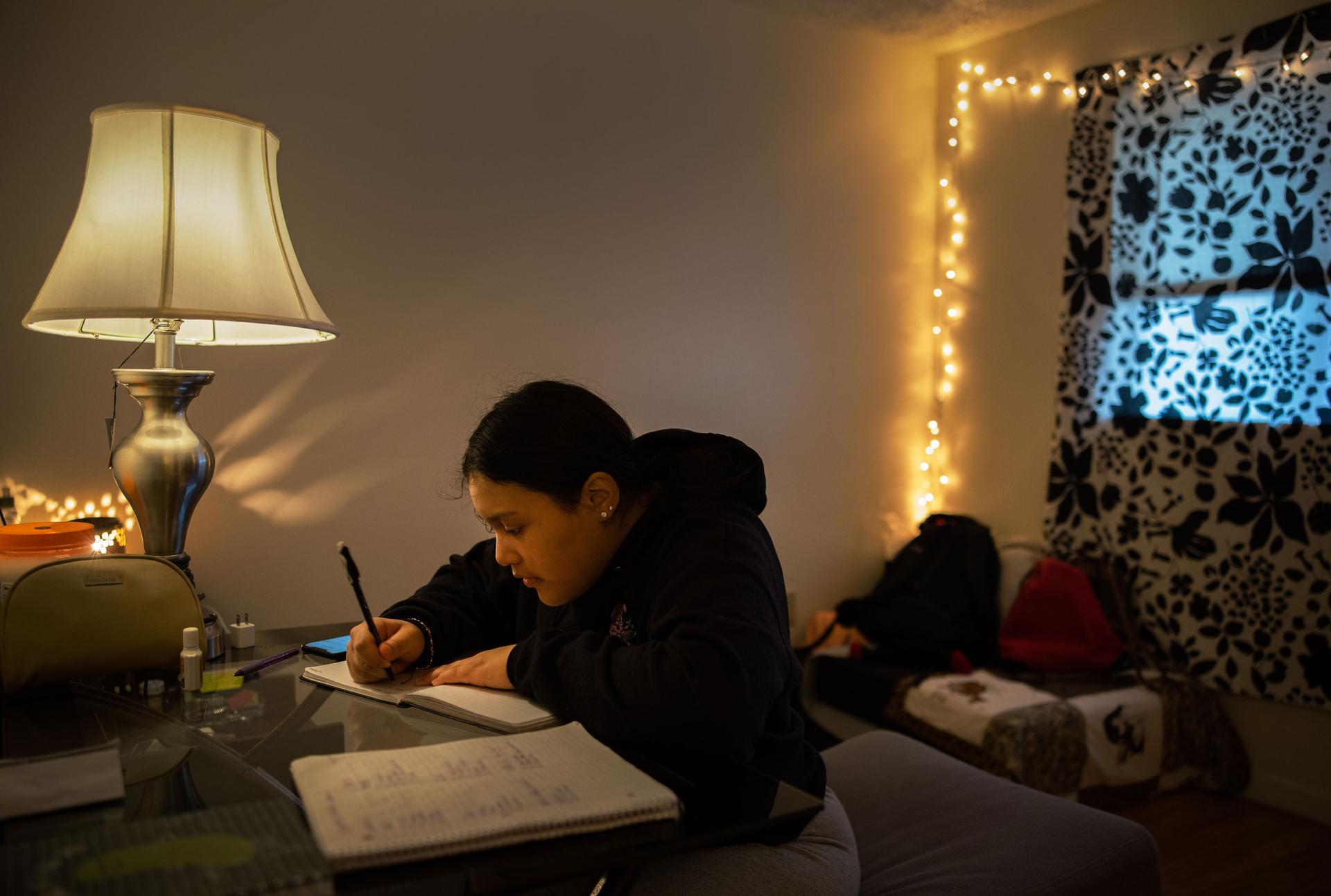
But Ramirez noticed that for the first time, she has more conservative neighbors compared to Seattle. When she first moved to Spokane, she said that her waves of “hello” were met with empty stares. It was an experience that Ramirez shared with other Latinos like her who are trying to find their place in a nation that has not always been welcoming to immigrants.
“The block that’s in front of me, I avoid intentionally. … My dog always wants to walk that way but I don’t because one of the houses on that side has confederate flags.”
“The block that’s in front of me, I avoid intentionally,” Ramirez said. “My dog always wants to walk that way but I don’t because one of the houses on that side has confederate flags.” The neighbors also had a “Make America Great Again” flag on their truck, but they have taken that down since the election.
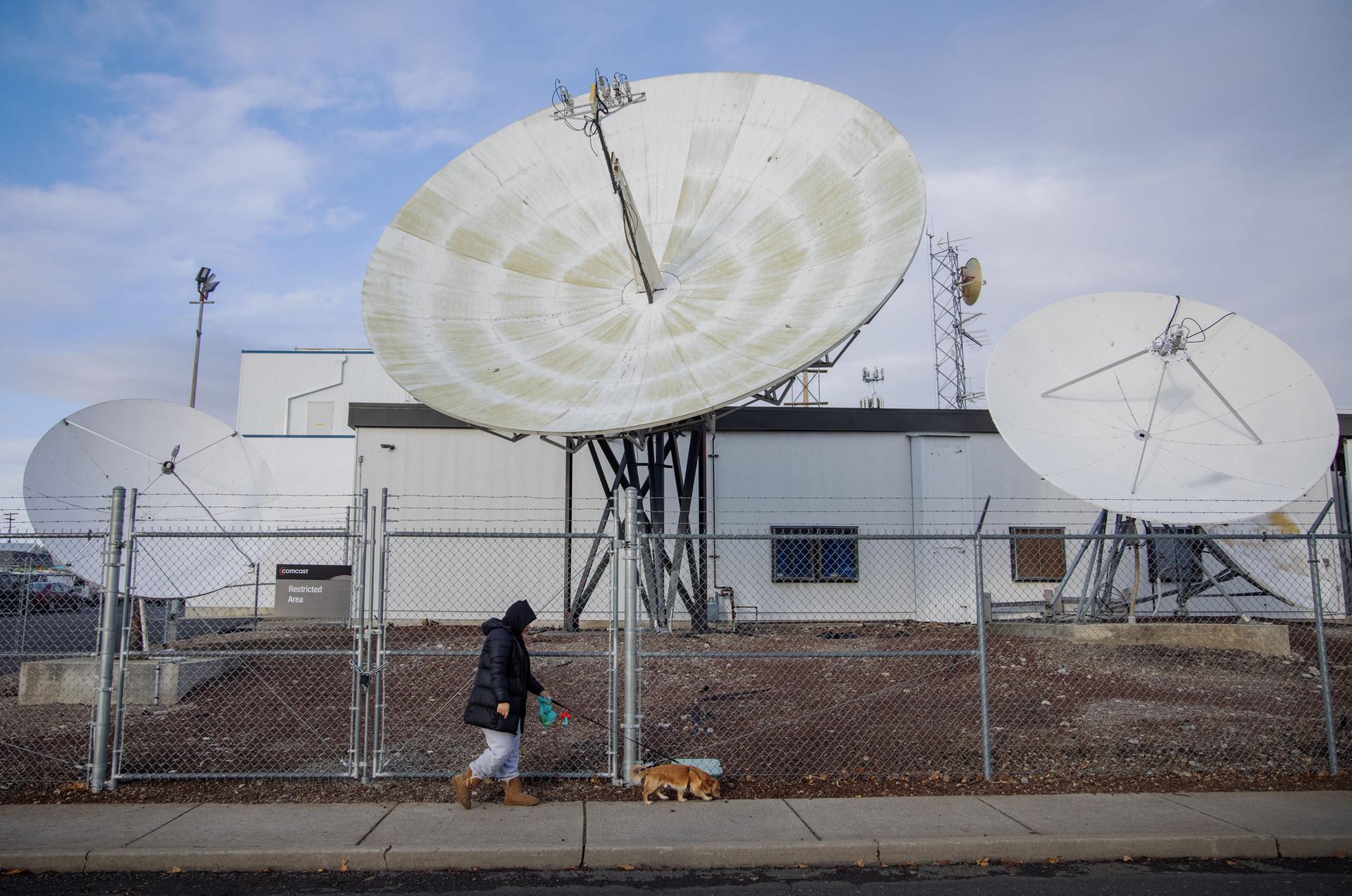
She thinks her family might be the only Latinos on that block. Latinos make up only about 6% of the population in Spokane, and Black residents are just 2%.
The simple act of walking a dog feels like higher stakes for Ramirez, whose family is from Guatemala, and some have mixed immigration status. She worries that a small dispute among neighbors could result in a call to US immigration officials.
Related: This Latina first-time voter ‘can’t stay mute’ about racism
“It’s sometimes scary because I don’t know if they just don’t like me because I’m brown or if they just don’t like me because I’m new here. Or. [if] they’ll be able to trust me or something. It gives me a rollercoaster of emotions,” she said.
Ramirez voted for President-elect Joe Biden. Her neighbors don’t know that but in a polarized country, symbols like flags or bumper stickers can signal charged political affiliations, leaving Ramirez feeling guarded. She said she now makes a conscious choice to use English instead of Spanish when she’s out grocery shopping and avoids certain blocks in her neighborhood where she doesn’t feel safe.
“I feel ashamed for saying this but I don’t really like speaking Spanish out here, because I know people stare.”
“I feel ashamed for saying this but I don’t really like speaking Spanish out here, because I know people stare,” she said.
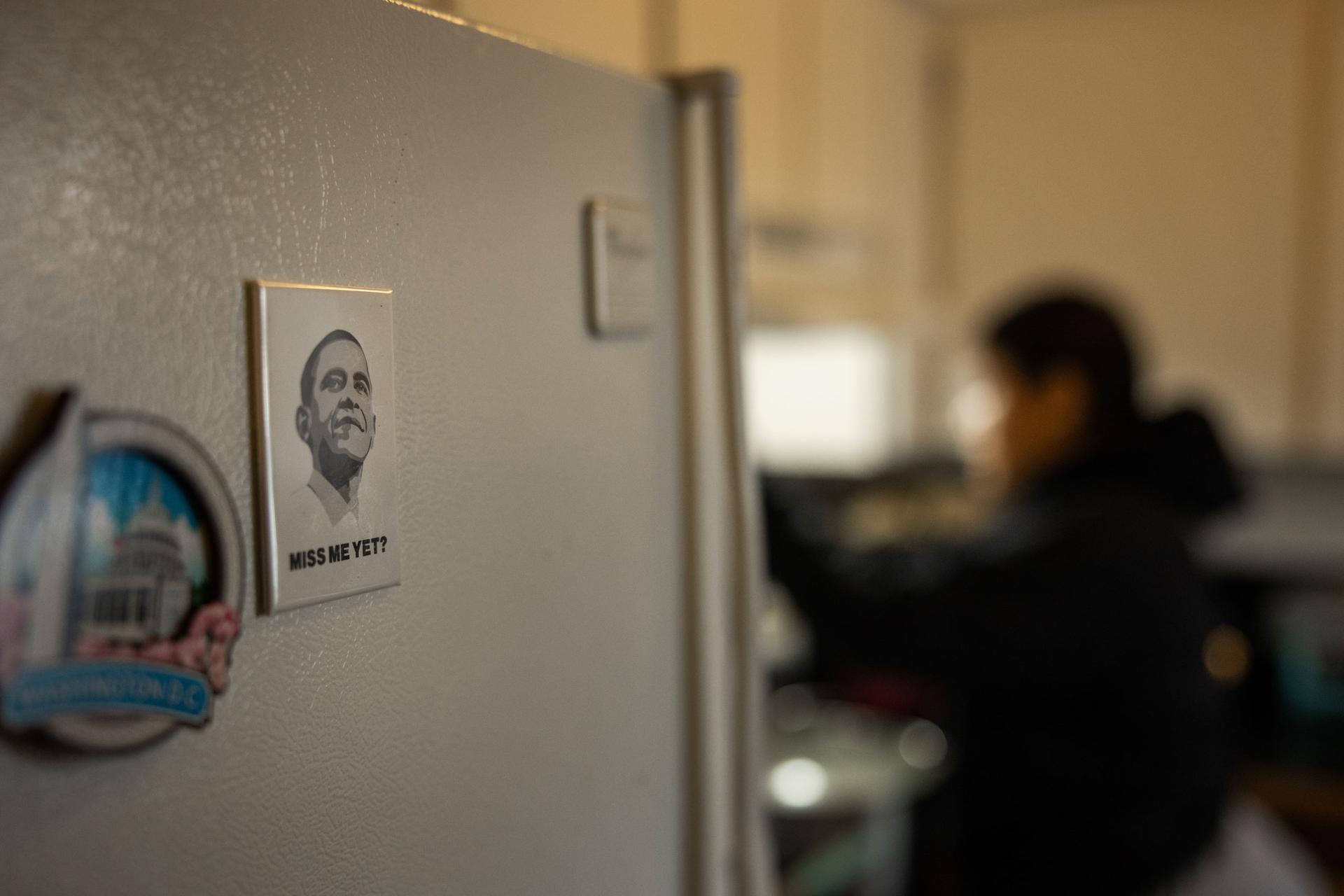
José Campos, a Spokane resident originally from Ecuador, was not surprised when he heard about Ramirez’s experience. He has had similar experiences at work and out shopping, he said.
“It’s always been a Republican kind of city. … This year, between Trump and Biden, was the first year it’s been close from switching.”
“It’s always been a Republican kind of city, “Campos said. “This year, between Trump and Biden, was the first year it’s been close from switching,” he said.
In 2016, President Trump won by more than 8 percentage points or nearly 20,000 votes. In 2020, Spokane County voted to reelect Trump but by a slimmer margin, with only 5 percentage points difference — around 13,000 votes.
Campos is also part of a community group called Latinos in Spokane, which connects Latinos in the city to resources and each other. During his time in Spokane, Campos has seen the gradual change in the city, with more Black and brown faces.
With demographic changes, there have been political shifts, too.
“I’ve been here since 1999, I have never seen that much tension, now it’s bad,” Campos said.
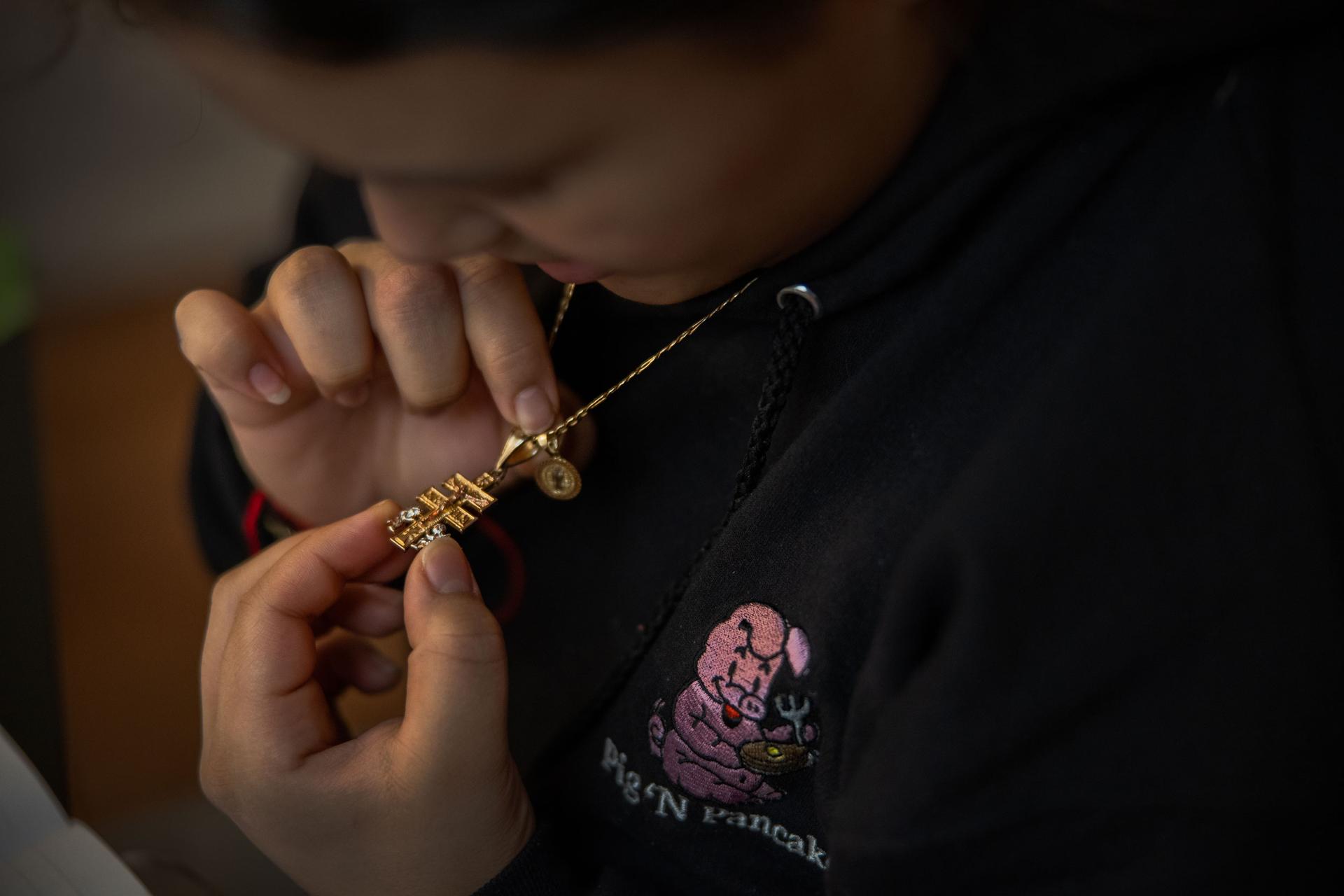
President-elect Joe Biden pledges to heal political divides stoked even further by the recent election. Healing will take time and good faith efforts. Many in Spokane are willing to do that work, but others are opposed.
Related: Here’s how 8 young Latino voters view the 2020 US election
Earlier this month, Spokane Public Radio reported on a man who attempted to bomb the Democratic Party’s city headquarters. He walked in with a backpack and told staff he had a bomb. It was a false alarm and no one was hurt, but it was a stark reminder of ongoing political tensions.
For Ramirez, these incidents and her experiences so far have changed her mind about where she wants to go to college. Previously, she had eyed two universities nearby. Now, she doesn’t think she can live in Spokane long-term.
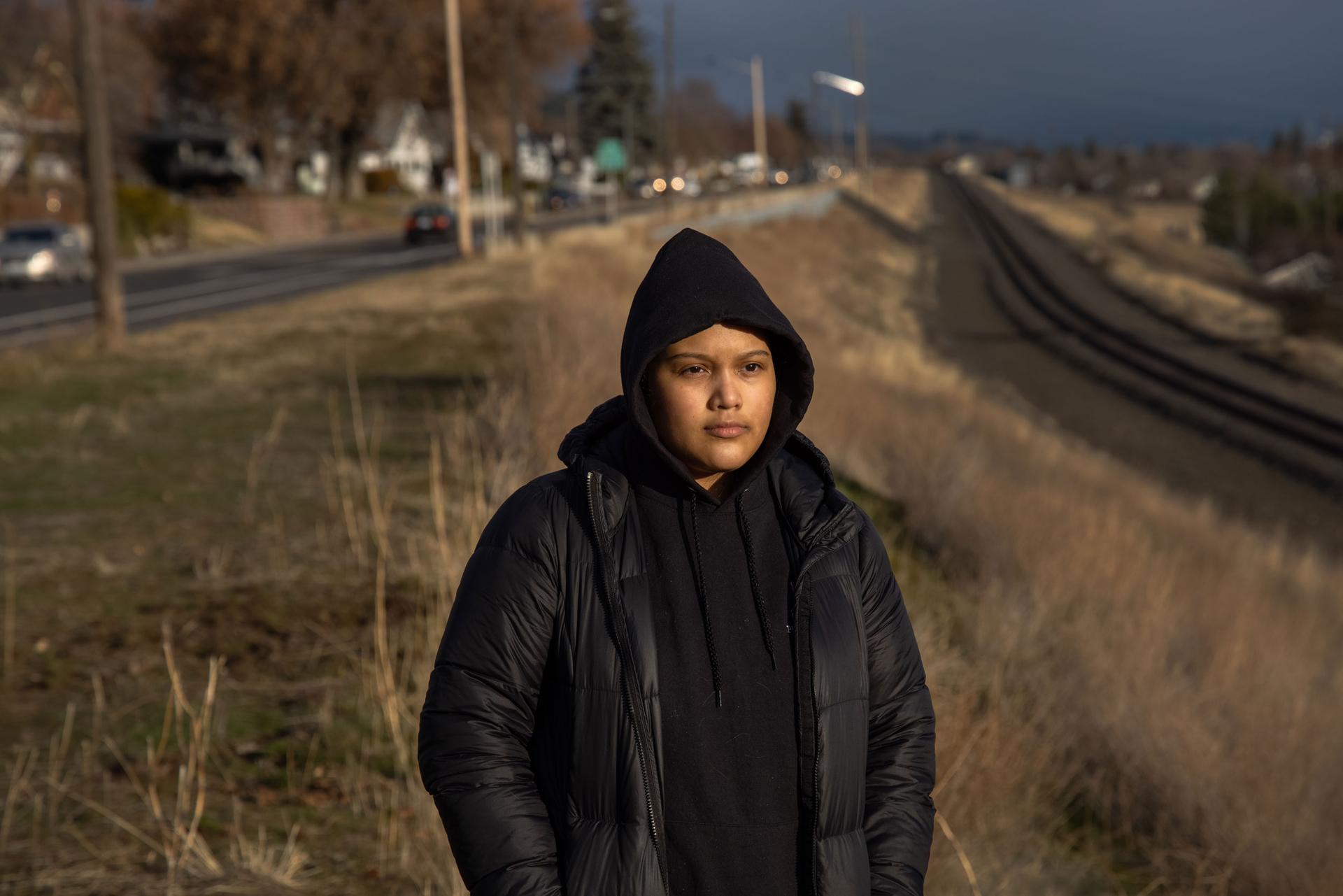
“I already got my fair share of the experience,” she said. “I already know that I’m not going to like anything.”
She is now considering a move back to Seattle or Tacoma, where, she said, she doesn’t have to worry about what language she speaks.
The story you just read is accessible and free to all because thousands of listeners and readers contribute to our nonprofit newsroom. We go deep to bring you the human-centered international reporting that you know you can trust. To do this work and to do it well, we rely on the support of our listeners. If you appreciated our coverage this year, if there was a story that made you pause or a song that moved you, would you consider making a gift to sustain our work through 2024 and beyond?
